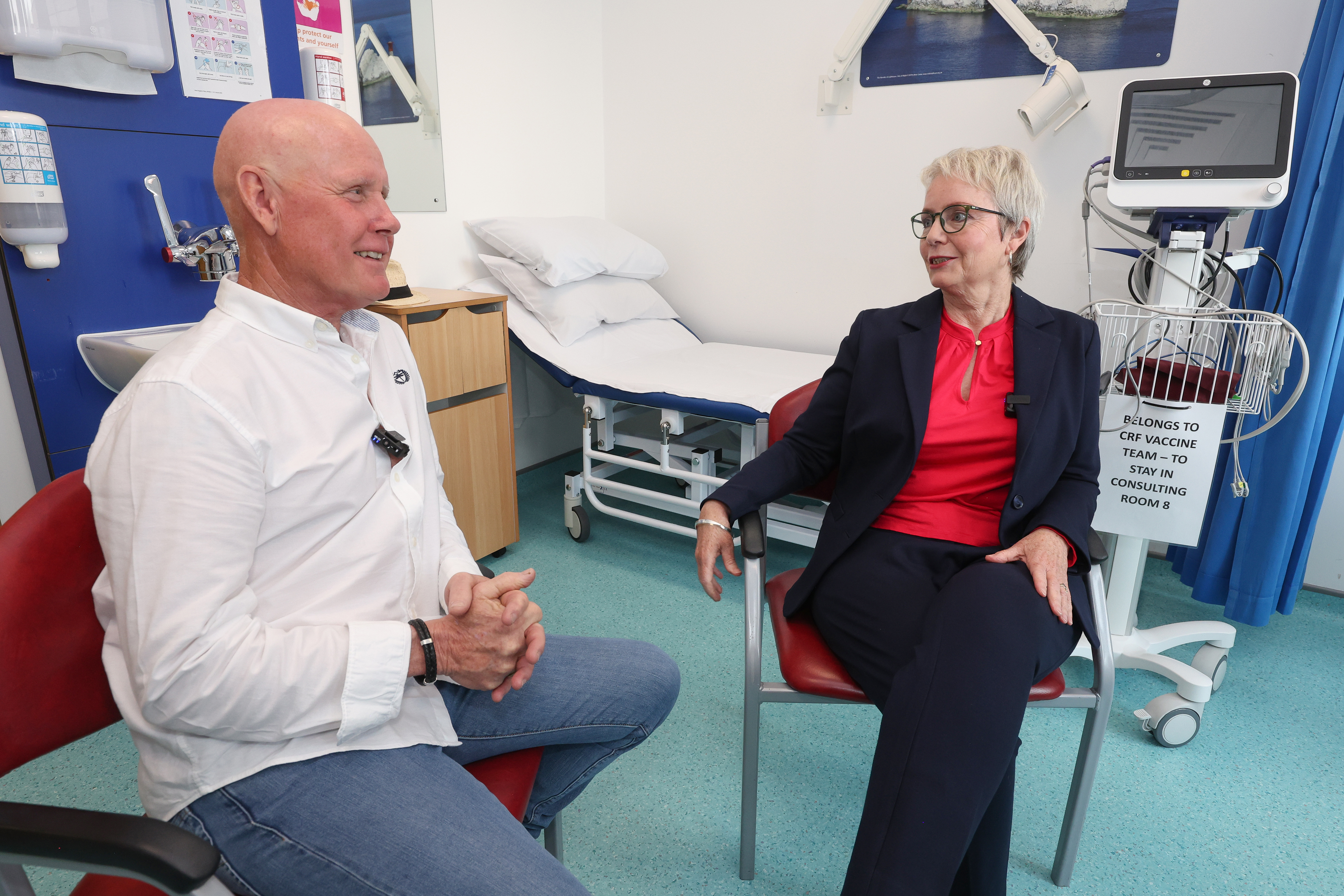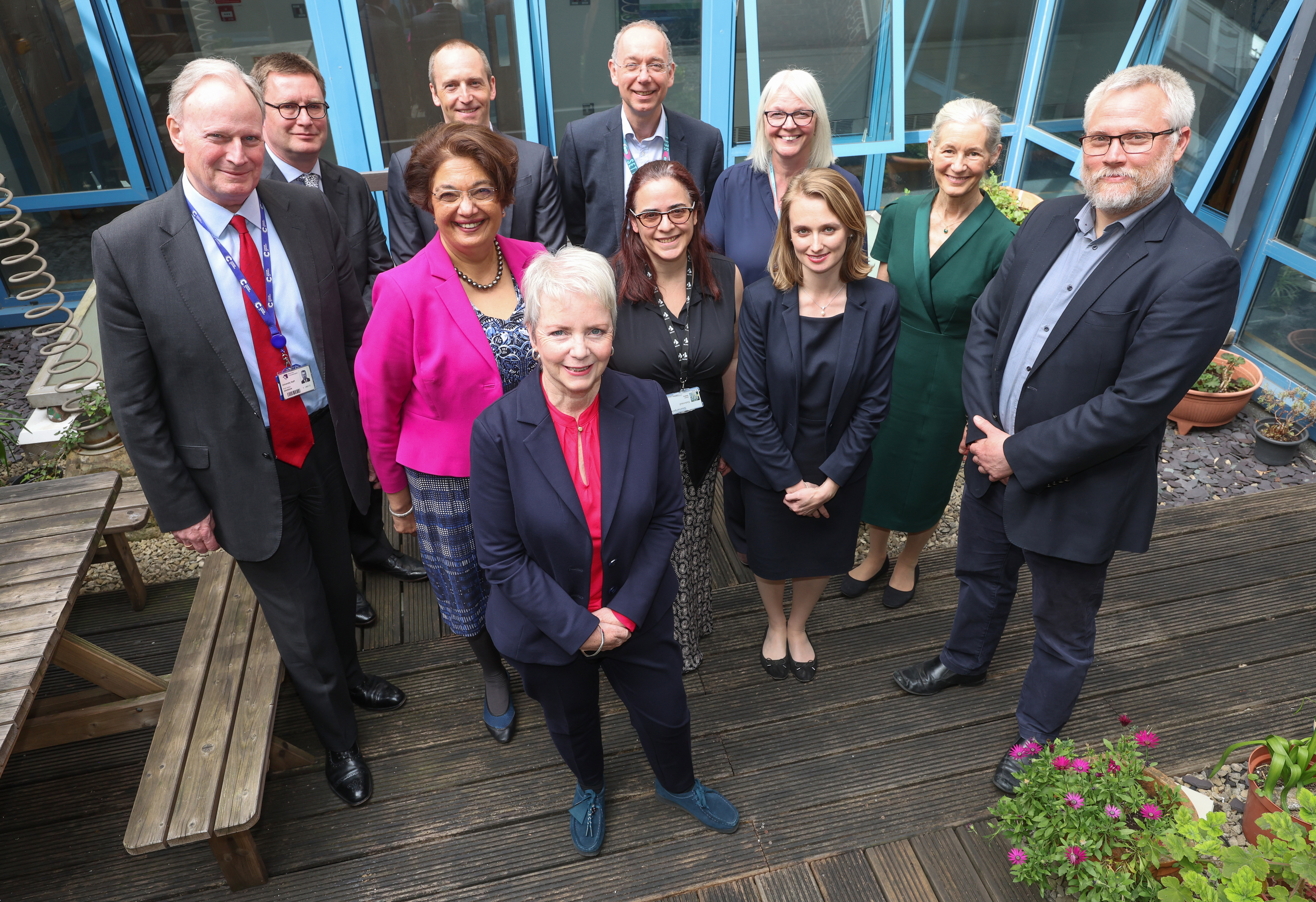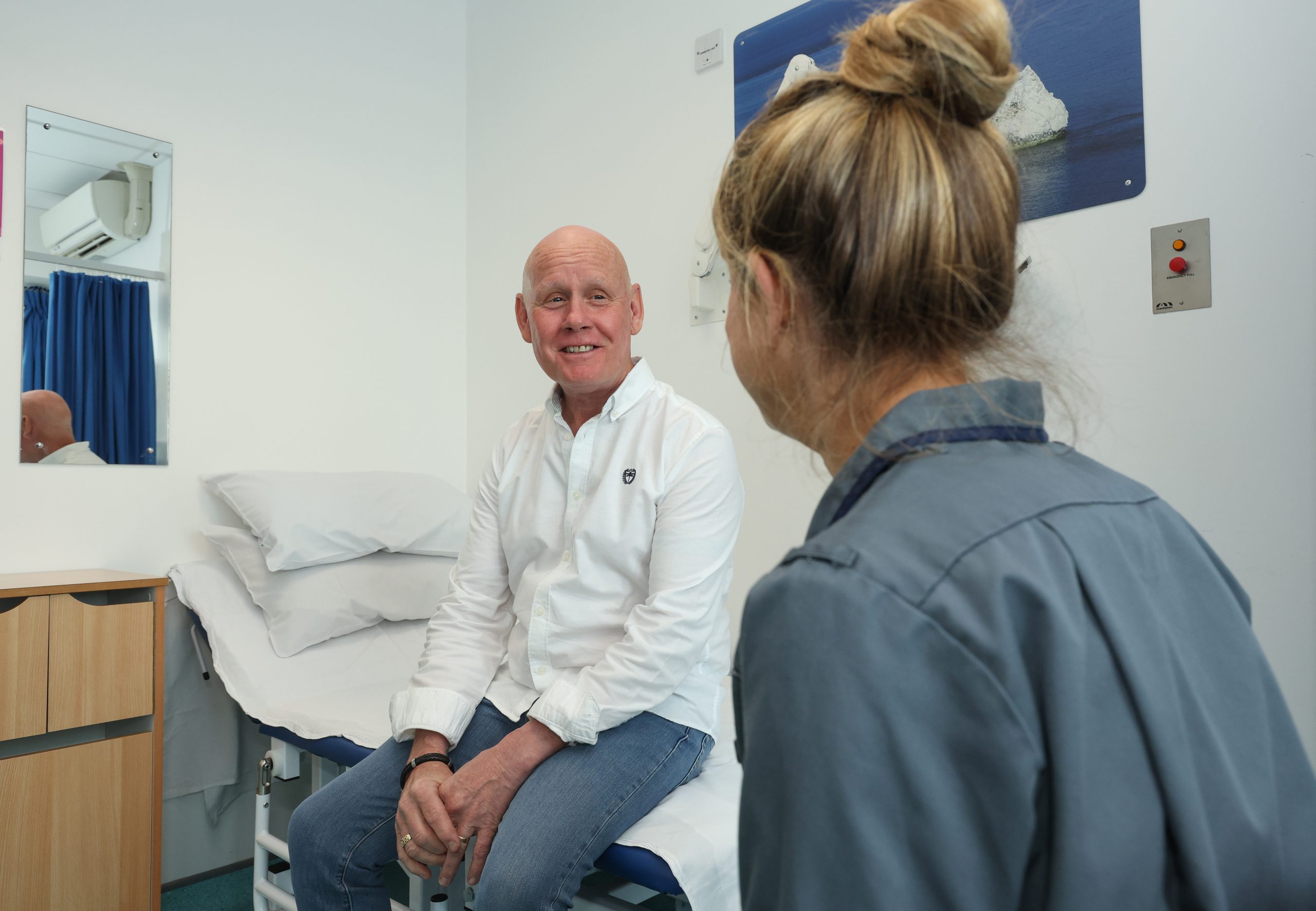Government minister Karin Smyth visited University Hospital Southampton (UHS) to mark the latest milestone for the NHS Cancer Vaccine Launch Pad (CVLP).
The CVLP is run by the Cancer Research UK Southampton Clinical Trials Unit on behalf of NHS England. It is able to match eligible patients to studies developing vaccines against different cancers at their nearest participating hospital.
Karen Underwood, Director of Research & Development at University Hospital Southampton, said: “Research is vital to advancing healthcare and I am delighted that more patients will now benefit from access to pioneering cancer vaccines.
“Evidence shows that hospitals actively engaged in clinical research tend to have better patient outcomes, even for patients who are not directly involved in a research trial, and that is why research is so important to our trust.”
For this latest trial, the NHS has partnered with Oxford-based life-sciences company Scancell to widen access to the trial for patients with advanced melanoma.
Melanoma is the fifth most common cancer in the UK, accounting for around 4% of all new cancer cases – with analysis by CRUK showing cases had risen by a third between 2009-2019.
Around half of melanoma patients respond to standard care of immunotherapy, but people who don’t respond are at higher risk of their cancer progressing.
The new DNA vaccine, known as iSCIB1+ (Immunobody®) aims to improve the recognition of cancer cells by the immune system to boost response to immunotherapy.
The vaccine, which is given for up to two years, works by helping the immune system to recognise, attack and ‘remember’ cancer cells, to try and prevent the disease returning.
The phase II SCOPE trial is already underway at several hospitals across the country. The CVLP is now aiming to expand the number of patients who are able to take part, recruiting dozens of patients at participating hospitals across the country by October.

Grandfather of four Paul Thomas, 63, from New Milton in Hampshire, is already taking part in the SCOPE trial at UHS. Paul was first diagnosed with advanced skin cancer in 2017, and within two weeks he was having surgery which included removing several lymph nodes. But the disease kept returning following treatment. Last year Paul, who owns a window cleaning business, was given the opportunity to be part of the skin cancer vaccine trial.
He said: “I feel so lucky to be put on the trial. Thankfully I was still quite fit and since I’ve been on it, every time I go for a scan they seem to be shrinking, which is really exciting.
“I’m really hoping for total eradication of my cancer, as opposed to being put in remission and I’m feeling optimistic. The care I’ve had so far has been fantastic and the team that have looked after me have been superb, along with amazing support from my family, I’m so thankful.”
To mark the launch of the SCOPE trial on the CVLP, Minister of State for Health, Karin Smyth visited UHS and the Southampton Clinical Trials Unit (SCTU), which is part of the University of Southampton.
During the visit she met Paul as he was being treated at the hospital’s NIHR Southampton Clinical Research Facility.
Minister Smyth said: “As someone who has overcome skin cancer, I know that every advancement in treatment brings hope to patients and their families.
“This innovative collaboration through our Cancer Vaccine Launch Pad could transform how we treat advanced melanoma. By fast-tracking eligible patients into clinical trials across the country, we’re ensuring more people can access potentially life-saving innovations while supporting crucial research.
“This is just the start; our Plan for Change will continue driving fundamental reform of the NHS to ensure it is delivering for all patients once again.”

Prime Minister Keir Starmer said: “This kind of innovation is nothing short of life-saving and I want to see more of these world-leading treatments being developed in the UK.
“That’s why through our Plan for Change we’ve taken action to boost our life sciences sector through steps to fast track clinical trials and cut red tape for researchers – so that Britain is the best country in the world for medical research.
“This will accelerate the discovery of transformative treatments and improve services for patients, driving growth across the country while making sure as many people as possible can benefit from cutting-edge treatments.”
The vaccine being developed in the SCOPE trial targets biomarkers specific to melanoma tumours, acting as a flag to alert the immune system. This triggers the activation of T cells, which seek out, attack and destroy the cancer cells.
Professor Simon Crabb, Associate Director at the SCTU and lead for the CVLP at UHS, said: “The hope is that for patients like Paul, this additional cancer vaccine, in combination with the immunotherapy they are already being given, will be able to boost the body’s own immune response to the cancer. But importantly, cancer vaccines also induce a lasting response by creating an immune ‘memory’ that may delay progression of the cancer in the future.”
Professor Gareth Griffiths, Director of the SCTU, said: “It is fantastic to see the expansion of the Cancer Vaccine Launch Pad with the addition of this melanoma cancer vaccine trial. Our team have been working hard with Scancell to bring the trial on to the CVLP platform and we hope that by being part of this ground-breaking programme we can help to increase referrals for this trial and give more patients with advanced melanoma access to new, potentially life-saving treatments.”
NHS national cancer director Professor Peter Johnson said: “Skin cancer can have a devastating impact, and we know that cancer vaccines have the potential to revolutionise cancer care for patients in this country and across the world – and to save more lives.
“We want to ensure as many eligible NHS patients as possible have access to these vital trials, which is why we are working with a range of industry partners as more studies get up and running to ensure patients are fast-tracked to a vaccine that could transform lives.”


